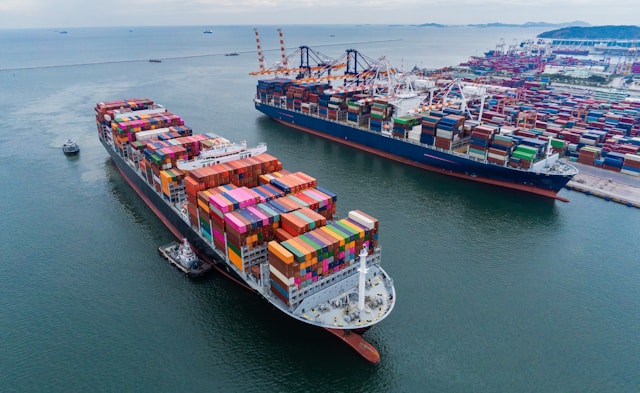Visa Stock Analysis: Is Visa a Strong Opportunity Ahead of Q4 Earnings?
$325.48
28 Jan 2026, 19:25

Unsplash.com

A major shift in global trade policy unfolded as President Donald Trump’s reciprocal tariffs officially came into effect at midnight Eastern Time on Wednesday, intensifying trade disputes between the United States and its key economic partners.
Among all nations affected, China bore the brunt of the new tariffs. Following China's retaliatory measures, Trump followed through on his threat to impose an additional 50% tariff, bringing the total US tariffs on Chinese imports to a staggering 104%.
Other major economies also saw steep tariff increases:
European Union: 20% tariff
Japan: 24%
Vietnam: 46%
South Korea: 25%
Taiwan: 32%
The tariffs are part of Trump’s effort to combat what he describes as unfair trade practices and large trade deficits with countries that export heavily to the US. In addition, a 10% baseline tariff on all US imports was implemented last week, signalling a broader protectionist shift in US trade policy.
Trump’s newly implemented tariffs on China far exceed the 60% rate he promised during his 2024 campaign, signalling a more aggressive approach than markets had anticipated. The recent round of tariffs follows the 25% duty on automobile imports, which took effect last week. It remains unclear whether these sector-specific tariffs will stack on top of the reciprocal tariffs.
Speaking at a National Republican Congressional Committee event on Tuesday, Trump revealed that a “major tariff” on pharmaceutical imports is also in the works. He defended his trade strategy, saying other countries had long taken advantage of the US—and now, it’s America’s turn to “do the rippin’.”
Trump stated the tariffs are generating approximately $2 billion in daily federal revenue, dismissing claims that they function as a tax on American consumers. However, US businesses are likely to absorb the initial costs, which may eventually be passed on to consumers, adding pressure to inflation and household budgets.
This mounting uncertainty is already impacting financial markets, with analysts now seeing an increased risk of a US recession in 2025. In response, the Federal Reserve is expected to slash interest rates more aggressively to counterbalance the economic slowdown triggered by rising tariffs.
The White House announced that over 50 countries have reached out to initiate trade negotiations since the tariffs were unveiled. Still, many—particularly China—have prepared retaliatory measures in response. Japan has already sent delegates to Washington to begin bilateral talks this week.
(Sources: investing.com, reuters.com)